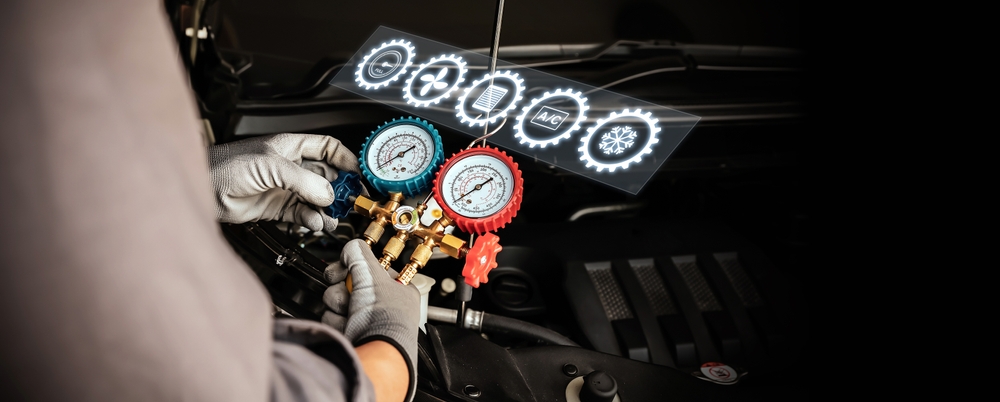Discover the Surprising Truth About Different Car Key Replacement Methods
Car key replacement has evolved dramatically with modern vehicle technology, creating confusion about which method works best for different situations. From traditional metal keys to sophisticated smart fobs with transponder chips, each replacement approach carries unique advantages, costs, and potential pitfalls that many vehicle owners don't fully understand.

Modern vehicles use increasingly complex key systems that go far beyond simple metal cutting. When faced with a lost or damaged car key, understanding your options can save both time and money while ensuring your vehicle’s security remains intact.
Understanding Different Car Key Types
Today’s automotive market features several distinct key technologies, each requiring specific replacement approaches. Traditional mechanical keys rely on physical cuts that match your vehicle’s lock cylinder. These straightforward keys typically cost less to replace but offer minimal security features.
Transponder keys contain embedded microchips that communicate with your vehicle’s immobilizer system. Without proper programming, these keys won’t start your engine, even if they fit perfectly in the ignition. Smart keys and key fobs represent the most advanced option, using radio frequency identification to unlock doors and start engines without physical insertion.
Proximity keys take convenience further by allowing keyless entry and push-button starting when the fob remains within range. Each technology level increases replacement complexity and typically raises associated costs.
Common Myths About Key Replacement Methods
Many vehicle owners believe that dealerships provide the only reliable key replacement option, but this assumption often proves costly and unnecessary. Independent locksmiths frequently offer identical services at reduced prices, especially for older vehicle models with standard transponder systems.
Another persistent myth suggests that aftermarket keys compromise vehicle security or functionality. Quality third-party keys often match original equipment manufacturer specifications while providing significant cost savings. However, programming requirements remain consistent regardless of key origin.
Some people assume that newer vehicles automatically require dealership service, but many locksmiths now possess advanced programming equipment capable of handling modern key systems. The key factor involves finding professionals with appropriate tools and expertise for your specific vehicle make and model.
The Cost Implications of Various Replacement Options
Replacement costs vary dramatically based on key type, service provider, and vehicle specifications. Understanding these financial implications helps you make informed decisions when facing key replacement needs.
| Service Provider | Basic Key | Transponder Key | Smart Key/Fob | Programming Fee |
|---|---|---|---|---|
| Dealership | $25-50 | $150-300 | $300-600 | $100-200 |
| Independent Locksmith | $15-30 | $75-150 | $200-400 | $50-100 |
| Hardware Store | $5-15 | Not Available | Not Available | Not Available |
| Online Services | $10-25 | $50-100 | $150-300 | Varies |
Prices, rates, or cost estimates mentioned in this article are based on the latest available information but may change over time. Independent research is advised before making financial decisions.
Expert Insights on Choosing the Right Replacement Method
Automotive security professionals recommend evaluating several factors when selecting replacement methods. Vehicle age plays a crucial role, as older models often accept simpler solutions while newer vehicles require specialized equipment and programming.
Consider your timeline requirements carefully. Dealerships may require appointments and extended waiting periods, while qualified locksmiths often provide same-day service. Emergency situations typically favor mobile locksmith services that can reach your location quickly.
Verify provider credentials and insurance coverage before committing to services. Legitimate professionals carry proper licensing and liability protection, protecting you from potential damages during replacement procedures.
Potential Risks Involved in DIY Key Replacement
Attempting self-service key replacement carries significant risks that often outweigh potential savings. Programming errors can trigger security lockouts that require professional intervention, potentially increasing overall costs beyond original professional service fees.
Incorrect key cutting damages both new keys and existing lock cylinders, creating additional repair expenses. Modern vehicles with sophisticated anti-theft systems may enter permanent lockout modes after multiple failed programming attempts, requiring expensive dealership intervention.
Online tutorials rarely account for specific vehicle variations or updated security protocols. What works for one model year may fail completely on seemingly identical vehicles with different software versions or security updates.
Purchasing programming equipment for single-use applications proves economically impractical for most vehicle owners. Professional-grade tools cost thousands of dollars and require regular software updates to maintain compatibility with evolving vehicle systems.
The most significant risk involves permanent damage to your vehicle’s security system. Failed DIY attempts can corrupt immobilizer programming, disable electronic systems, or trigger anti-theft protocols that prevent normal vehicle operation. These complications often require extensive dealership diagnosis and repair procedures that far exceed professional key replacement costs.
Choosing appropriate key replacement methods depends on balancing cost, convenience, and reliability factors specific to your situation. While DIY approaches may seem attractive initially, professional services typically provide better value through guaranteed results and proper insurance protection.




